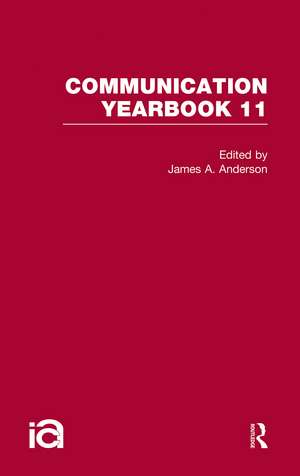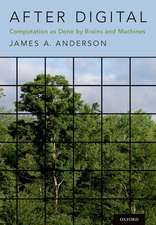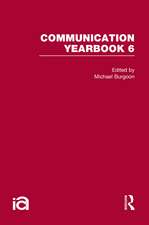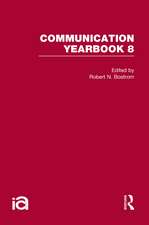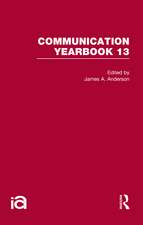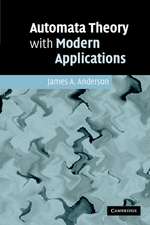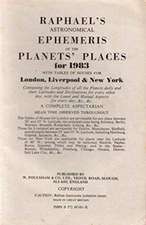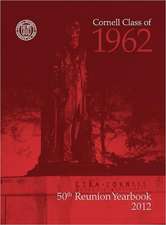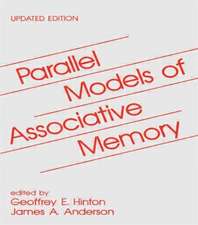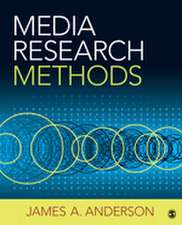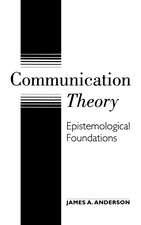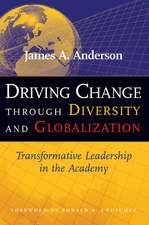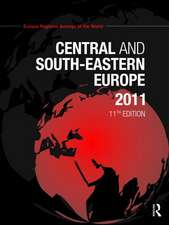Communication Yearbook 11
Editat de James Andersonen Limba Engleză Paperback – feb 2022
| Toate formatele și edițiile | Preț | Express |
|---|---|---|
| Paperback (1) | 416.22 lei 6-8 săpt. | |
| Taylor & Francis – feb 2022 | 416.22 lei 6-8 săpt. | |
| Hardback (1) | 1690.06 lei 6-8 săpt. | |
| Taylor & Francis – 25 oct 2011 | 1690.06 lei 6-8 săpt. |
Preț: 416.22 lei
Nou
Puncte Express: 624
Preț estimativ în valută:
79.64€ • 83.15$ • 65.92£
79.64€ • 83.15$ • 65.92£
Carte tipărită la comandă
Livrare economică 05-19 aprilie
Preluare comenzi: 021 569.72.76
Specificații
ISBN-13: 9781032243160
ISBN-10: 1032243163
Pagini: 650
Dimensiuni: 152 x 229 x 33 mm
Greutate: 0.45 kg
Ediția:1
Editura: Taylor & Francis
Colecția Routledge
Locul publicării:Oxford, United Kingdom
ISBN-10: 1032243163
Pagini: 650
Dimensiuni: 152 x 229 x 33 mm
Greutate: 0.45 kg
Ediția:1
Editura: Taylor & Francis
Colecția Routledge
Locul publicării:Oxford, United Kingdom
Cuprins
Section 1: The Mass Media Audience: Perceptive, Interpretive, or Not 1. The Perceptive Audience Barrie Gunter 2. Opposing Conceptions of the Audience: The Active and Passive Hemispheres of Mass Communication Theory Frank A. Biocca 3. Media Audiences as Interpretive Communities Thomas R. Lindlof Commentaries: Finding the Limits of Audience Activity Barrie Gunter The Breakdown of the "Canonical Audience" Frank A. Bioccaq The Practice of Attendance and the Forms of the Audience Thomas R. Lindlof Section 2: Television Criticism: Formats and Feminism 4. For Televisions-Centered Television Criticism: Lessons from Feminism Caren J. Deming Commentaries: Frames and Centers: The "Problem" of Television Criticism Robert C. Allen Recentering a Television-Centered Television Criticism: A Political-Economic Response Eileen R. Meehan 5. Toward A Theory of Mediation David L. Altheide and Robert P. Snow Commentaries: On Mediated Communication Theory: The Rise of Format Timothy P. Meyer Linguistic Character and A Theory of Mediation Gary Gumpert Section 3: Health Care: Communication Policies and Practices 6. The Pervasive Role of Information in Health and Health Care: Implications for Health Communication Policy Gary L. Kreps 7. The Role of Persuasion in Health Promotion and Disease Prevention: Review and Commentary Kathleen Kelley Reardon Commentary: Theoretical Plurality in Health Communication Loyd S. Pettegrew Section 4: Organizations: Media and Empowerment 8. Meaning and Action in the Organizational Setting: An Interpretive Approach Joseph J. Pilotta, Timothy Widman and Susan A. Jasko Commentaries: Cultural Studies: Studying Meaning and Action in Organizations Stanley Deetz The Cultural Perspective: New Wave, Old Problems Sue DeWine 9. Communication in the Empowering Organization Michael Pacanowsky Commentaries: Communication and Personal Control in Empowering Organizations Terrance L. Albrechet "Empowering" as a Heuristic Concept in Organizational Communication Ernest G. Bormann Section 5: Conversations and Texts 10. On Conversation: The Conversation Analytic Perspective Don H. Zimmerman Commentaries: Evidence and Inference in Conversation Analysis Scott Jacobs From Resource to Topic: Some Aims of Conversation Analysis D. Lawrence Wieder 11. On the Facts of the Text as the Basis of Human Communication Research George Cheney and Philip K. Tompkins Commentaries: On the Facts of the "Facts of the ‘Text’" Robert D. McPhee Constructing "Texts" and Making Inferences: Some Reflections on Textual Reality in Human Communication Research Mary S. Strine Section 6: Public Opinion and Agenda-Setting 12. Communication Perspectives in Public Opinion: Traditions and Innovations Alex S. Edelstein Commentaries: Interest Groups and Public Opinion David L. Paletz and John Boiney Public Opinion and the Construction of Social Reality Phillip J. Tichenor 13. Agenda-Setting Research: Where Has it Been, Where is it Going? Everett M. Rogers and James W. Dearing Commentaries: New Directions of Agenda-Setting Research Shanto Iyengar Felling the Elephant: Some Observations on Agenda-Setting Research David L. Swanson
Descriere
In Communication Yearbook 11 major contributions from leading scholars in a variety of communication fields are presented and then critiqued by other authorities (often representing complementary or competing schools of thought). Topics addressed and commented on include the mass media audience, the theory of mediation, ef
